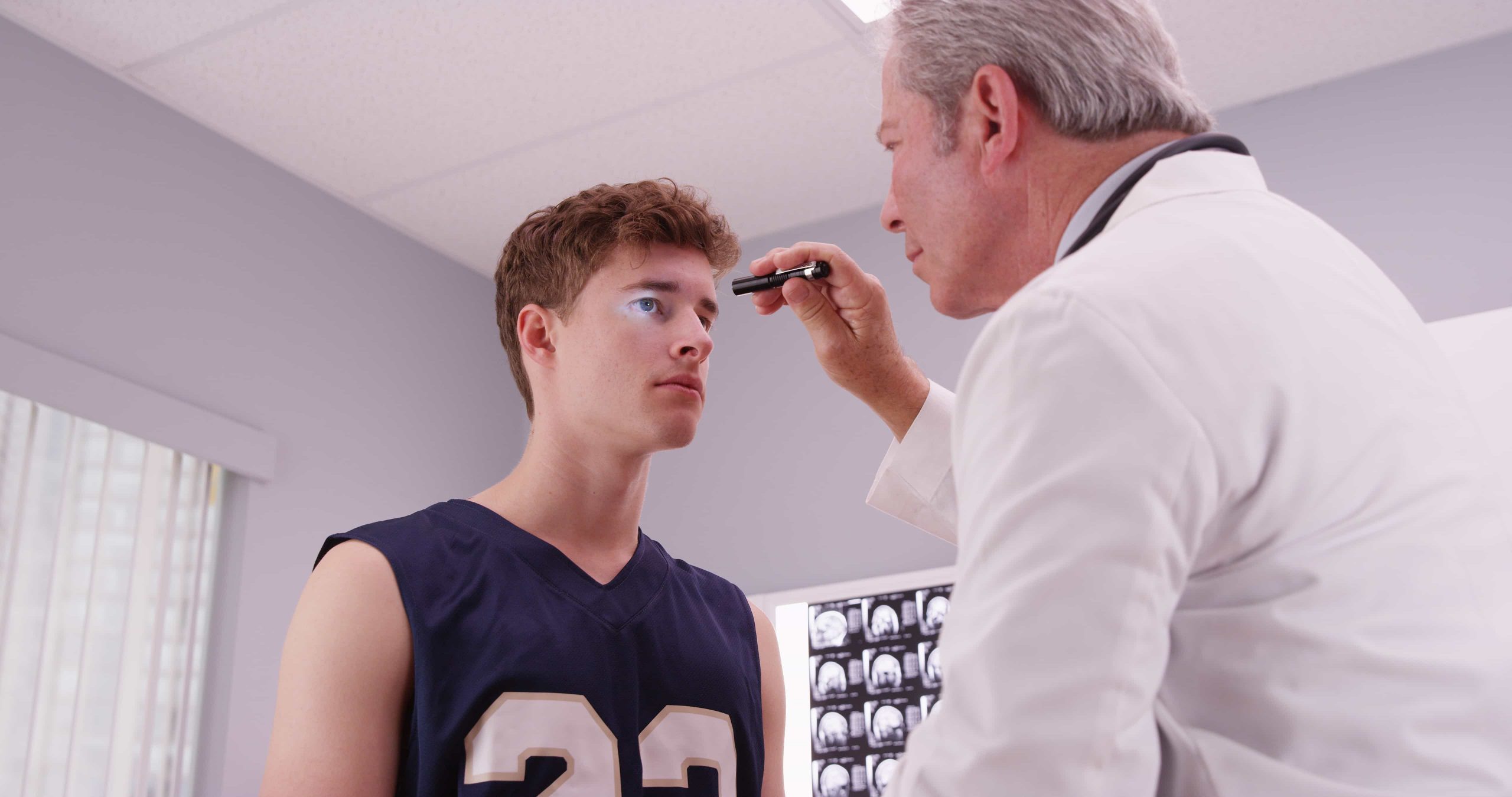
Mental Health Changes After a Brain Injury: A Guide to TBI and Psychological Effects


Every year, 1.5 million Americans suffer from a traumatic brain injury (TBI), which can include mild TBIs or concussions. Beyond the physical effects, TBIs can trigger a wide range of mental health changes after a brain injury. These include anxiety, depression, mood swings, and other behavioral or emotional shifts.
These changes are often invisible, but can cause significant struggles among those living with traumatic brain injuries, no matter the severity. Understanding the psychological and emotional effects of a TBI is a critical first step in seeking help and exploring treatment options.
If you have sustained a TBI and are experiencing behavioral and emotional shifts like depression, anxiety, or irritability, it’s not uncommon. The good news is that hyperbaric oxygen therapy (HBOT) can provide genuine results when used with other treatments. And Aviv Clinics carries the data to back it up.
Keep reading for all the key details on using hyperbaric oxygen therapy for TBI and how it can help ease mental health changes after a brain injury.
What Happens to the Brain When You Have a TBI?
Psychological changes can occur when the brain’s frontal lobe sustains damage, most commonly caused by a sports injury, a fall, violence, or a vehicle accident. This region of the brain manages emotions and personality traits. After a TBI, an individual might begin acting differently, have uncharacteristic emotional outbursts, or experience other side effects.
Since blows to the head often cause more severe TBIs, another side effect may be amnesia, which can spare the patient the traumatic memories of the incident.
6 Mental Health Changes and Psychological Effects of a TBI
Often, patients and their loved ones don’t realize their behavioral and emotional shifts are the result of a brain injury. Symptoms can materialize gradually, sometimes weeks after the trauma. Blows to the head may also cause amnesia of the event, which can also make it difficult for patients to connect a head injury with its psychological effects.
A lack of understanding makes navigating psychological changes even more difficult. However, there are six common signs you can watch for.

1. Anxiety After a Brain Injury
Anxiety is common in those with moderate-to-severe TBI. It manifests differently for everyone, but most people experience worry and fear.
Anxiety can also show in physical ways, causing symptoms like:
- A racing heart
- Rapid breathing
- Sweating
- Shaking
Certain events/activities might also trigger anxiety, including:
- Large social situations or crowds
- Sudden or unexpected changes in plans
- Feeling rushed
- Situations that merit fast thinking or a lot of attention
2. Depression Following a TBI
Depression involves feelings of sadness, grief, and worthlessness. More than 40% of people with a TBI can experience depression. These emotions might make you:
- Feel tired or frustrated more than usual.
- Experience changes in sleep and eating patterns.
- Withdraw from friends and family.
- Feel less joy from favorite activities.
- Show aggressive behavior (67% of first-time TBI patients sought treatment within three months for aggression).
3. TBI and Mood Shifts
Emotions can be difficult to manage after a TBI. Depending on the impact, TBIs can change how you feel or express emotions. For example:
- You might be full of excitement or joy one moment, followed by feelings of devastation or sadness the next.
- You might have unpredictable moments of laughing or crying. These emotional expressions may have nothing to do with what you’re feeling or what’s happening around you.
- You might exhibit childlike or aggressive behaviors after a brain injury, potentially having emotional outbursts or feelings of impulsiveness.
4. Paranoia After a Brain Injury
Paranoia is another mental health change possible after a brain injury. The average onset of paranoia occurs four to five years after a TBI. Paranoia causes people to become unusually defensive, often believing they’re under threat when little to no evidence of an actual threat exists.
Other signs of paranoia include:
- Trouble admitting faults
- Detachment or social isolation
- Doubting the loyalty of others
- Holding grudges
5. Personality Disorders Following a TBI
Some people may develop personality disorders after TBIs. A personality disorder is a mental health condition involving disruptive thinking and behavior patterns.
For example, a brain injury patient with narcissistic personality disorder may have an inflated sense of self-importance and an excessive need for admiration. Roughly one in 10 patients with TBI show symptoms of a personality disorder.
6. TBI and Executive Dysfunction
Executive dysfunction is a behavioral symptom that makes it challenging to manage thoughts, emotions, and actions. Symptoms might include:
- Having trouble paying attention
- An inability to prioritize tasks
- An inability to plan for and remember future events (i.e., always being late to events/activities)
- Having difficulty analyzing and/or processing information
- Exhibiting poor judgment
- Struggling to make decisions
These symptoms can cause frustration, adding to the mental health challenges outlined above.
7. PTSD and ADHD After a Brain Injury
Overlap between TBI and the effects of post-traumatic stress disorder (PTSD) and attention deficit hyperactivity disorder (ADHD). Studies show that:
- Children with severe TBI carry a higher risk for ADHD.
- Those with a mild TBI are more likely to develop PTSD than patients experiencing moderate-to-severe TBI.
Developing PTSD from an accident can complicate the TBI recovery process. The injury may inhibit their ability to experience emotional closure after the traumatic event.
An important reminder: Not all of these mental health changes appear immediately after a brain injury. In many cases, they can take months or even years to develop.

Could You Have a TBI and Not Know It?
Yes, it’s possible to have a TBI and not know it. Brain injuries are more common than people realize, and some cases of TBI are never accurately diagnosed. Some of the reasons behind missed diagnoses include:
- Mild, random, or generic symptoms that don’t accurately manifest the severity of the injury
- Remaining conscious after an injury, resulting in the patient feeling like the injury wasn’t severe enough to seek medical treatment
These points cause many to dismiss the notion of getting a CT scan or MRI, which is the first and most vital step in detecting structural damage to the brain. More advanced assessment tools, such as functional MRIs or SPECT imaging scans, can also detect:
- Metabolic damage in the brain tissue
- Brain cells that don’t function properly
How Hyperbaric Oxygen Therapy Can Help with Mental Health Changes After A Brain Injury
Mental health changes after a brain injury don’t have to be permanent fixtures in your everyday life. TBI rehabilitation programs have proven effective, offering relief for those who have struggled with the impact of this type of injury.
At Aviv Clinics, our TBI rehab plan often involves hyperbaric oxygen therapy (HBOT) in combination with cognitive, nutritional, and physiological protocols.
A 2025 study illustrates the key mental health and psychological improvements that HBOT may produce in people with brain injuries. The Phase II clinical trial found significant improvements in anxiety, depression, and PTSD symptoms in brain injury survivors after 40 hyperbaric treatments. The patients also reported better mood and improved sleep quality after HBOT.
At Aviv Clinics, our HBOT protocol is a unique, evidence-based treatment that differs from the hyperbaric oxygen administered in most other locations. Patients receive treatment in a hyperbaric suite, not a single-person chamber, where multiple people can sit in comfort and breathe 100% pure oxygen through a mask. Experienced hyperbaric technicians monitor each suite. Inside the suite, on-board medical personnel help clients to alternate between breathing normoxic (normal) and hyperoxic (high oxygen) levels. Published clinical trials illustrate that these oxygen fluctuations trigger the self-regenerative mechanisms of the brain and body.
Scientific evidence shows this unique protocol can produce multiple changes in the brain, including:
- Blood vessel formation (angiogenesis)
- New and stronger neural connections (shows promise in healing anoxic brain damage)
- New neurons (neurogenesis)
- Proliferation and differentiation of stem cells
Aviv Clinics in central Florida is the most active civilian hyperbaric facility in the United States, with four 14-person HBOT suites. Each hyperbaric session is conducted with a nurse, EMT or other certified medical personnel inside the suite during treatment.
TBI Survivor Stories
Studies illustrate TBIs are detectable and treatable even years after they occur. With Aviv’s personalized therapy programs that can include effective HBOT protocols, patients have experienced structural brain improvements that enhance their psychological health and overall quality of life.
These TBI survivor stories speak for themselves:
- Clarissa Rainey – Avid horseback rider and champion Clarissa had memory issues after a car accident. Learn how Aviv helped her get back to optimal health and back in the saddle.
- Linden Perry – Having undergone multiple sports concussions, 15-year-old Linden turned to Aviv to regain her health and performance. Find out how her customized treatment plan gave her more confidence to thrive academically and athletically again.
Aviv Clinics’ Traumatic Brain Injury Program in Central Florida
If you or your loved one has experienced mental health changes after a brain injury, you don’t have to face them alone. Aviv Clinics offers personalized TBI rehabilitation programs, which can include hyperbaric oxygen therapy, cognitive exercises, physical training and/or nutritional guidance. Our board-certified medical staff develops a personalized treatment plan for each client, designed to support brain recovery and emotional well-being.
Contact our team to schedule a free consultation today and discover how the Aviv Medical Program can help you regain control, improve cognitive function, and enhance your quality of life after a brain injury.
Last Update: August 14, 2025
Aviv Medical Program provides you with a unique opportunity to invest in your health while you age


